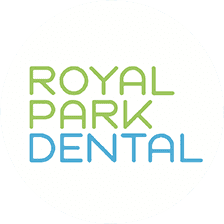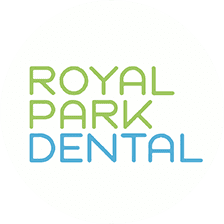Nervous Patients
“I Hate Going to See a Dentist”
Why do people feel nervous about going to the dentist?
Very often we hear people say to us, "I hate going to see a dentist". The truth is, the word 'hate' usually means “I’m afraid of seeing a dentist” or “I’m nervous about seeing a dentist”. According to recent research done by the University of Adelaide, one in six adults and about one in ten children are afraid to see a dentist and, because of their anxiety or fear, they often avoid making an appointment even when they have problems that could be successfully treated. This fear or nervousness is usually related to past unpleasant dental experiences, especially if the incident happened during childhood. Here are nine common reasons why many people feel nervous about going to the dentist.
Why do people feel nervous about going to the dentist?
It’s amazing how a small instrument like a needle can create so much fear and anxiety for many people. In fact, the needle is one of the most common reasons why people are nervous about seeing a dentist.
To help alleviate this fear, the dentist works alongside the patient by acknowledging their fear of needles and listening to the patient while they are sharing their specific concerns or their past dental history. They then devise strategies to help the patient overcome their fear of needles. With the dentist using distraction techniques and gentle administration of local anaesthetic, many patients find that they are in control, which then allows the dentist to progress with the treatment when the anaesthetic has taken effect. Not all dental treatments require anaesthetic. In some cases, minimally invasive dentistry can be done without anaesthetic.

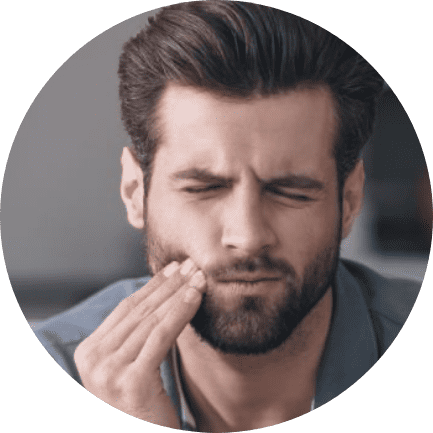
One of the questions dentists are most frequently asked is, “Is it going to hurt?”. If you’ve ever endured toothache, you know how excruciating it can be. That’s the reason why many people associate dentists with pain. Our teeth are located in a vulnerable, sensitive area of our body, so the threat of dental pain is very real. Many people have felt jolts of pain at the dentist in the past and they never want to feel anything like that again!
That’s why proper pain management is so important. Modern dentistry and specific strategies help patients to overcome the fear of pain and make dental treatments more comfortable. Helpful strategies that work with most patients include administering numbing gel prior to anaesthetic, slow administration of local anaesthetic and, if necessary, ‘laughing gas’ (conscious sedation by nitrous oxide administration).
Nitrous oxide gas is inhaled through a nose mask. It makes you feel free from anxiety while still able to hear, see and respond to actions happening around you. You may feel tingling, euphoria or floating. This simple and straightforward system is easy for the dentist and dental staff to operate and maintain.
Nitrous oxide sedation is very safe. It has very few side effects. It can be used safely in most patients from the very young to the elderly. It is very effective in eliminating or minimising severe gagging. There’s no ‘hangover’ effect and you should feel normal within 3 to 5 minutes after the gas supply is stopped. This means you can safely drive home without supervision.
In addition to the gas sedation, many of our patients comment on the warm and caring support they receive from our staff team members. Our gentle and friendly approach helps patients feel at ease and comfortable during visits.
For some people, the dental drill is what stands in between them and their dental visit. The high-pitched sound and the vibration of the drill become a focus for their anxiety. When they hear that sound, they start to sweat.
Thankfully, with the advances of modern dentistry, drills are now much quieter and smoother. It’s a fact that sounds tend to be amplified inside the mouth. If the drill is really intolerable, patients may opt for Sedation Dentistry to help them relax. Other patients like to listen to their favourite music through earphones to help block out the noise of dental appliances.


Dentists must work in a very small environment—the patient’s mouth cavity.
For many patients, dentistry can be seen as invasive because clinicians are working in such close proximity. In addition, patients are generally placed in an inclined position, which then increases their sense of powerlessness. The fact that the patient is unable to see what the clinician is doing in their mouth further heightens the perceived lack of control. All of these factors can result in what feels like an invasion of personal space.
To help alleviate the invasive aspects of dental treatment we work with our patients by:
- Communicating with patients to find out how we can work with them more comfortably
- Being gentle and informative about the procedure we are doing
- Giving control to the patient by encouraging them to signal if they need a break
- Building in time for breaks during dental treatment
- Listening to the patient’s feedback to discover whether there’s anything that could be done differently at the next appointment to help them overcome their fears.
For some people, the dental drill is what stands in between them and their dental visit. The high-pitched sound and the vibration of the drill become a focus for their anxiety. When they hear that sound, they start to sweat.
Thankfully, with the advances of modern dentistry, drills are now much quieter and smoother. It’s a fact that sounds tend to be amplified inside the mouth. If the drill is really intolerable, patients may opt for Sedation Dentistry to help them relax. Other patients like to listen to their favourite music through earphones to help block out the noise of dental appliances.
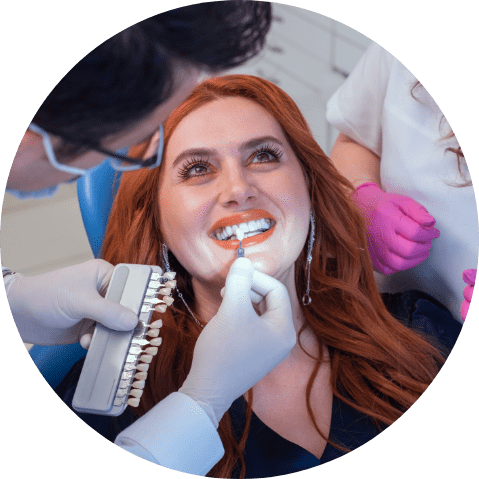
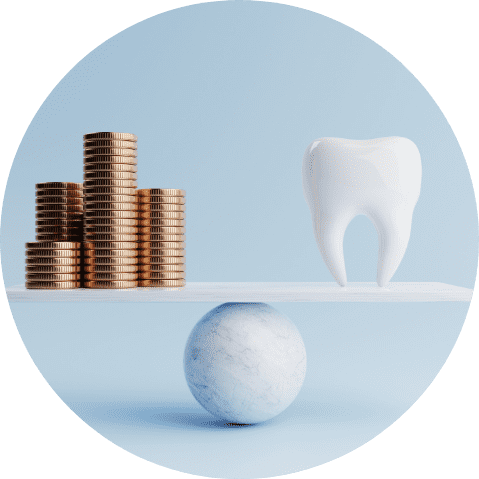
When comes to cost, there are three main issues. The first is affordability, the second is value, and the third issue is trust.
Let’s look first at affordability. For some people, cost can be a deal-breaker. Due to tight financial restraints, they simply cannot afford optimum dental care. People may have budget limitations for a range of reasons.
The next issue is value. Not everyone places high value on their dental health. Major work may require high financial outlay, but some people absolutely HATE spending hard-earned dollars on dentistry. Even if they have the money, they would rather be spending it on things that bring them more pleasure.
Trust is the final issue. Unfortunately, some people have developed the perception that all dentists are there to sell expensive and unnecessary treatments. Like any other profession, there may be a small percentage of dentists who are there just to make money. The majority of dentists, however, simply want to help people improve their health.
So, what happens if a patient cannot afford private dental care? Medicare can provide information about whether a person is entitled to benefits from one of the government dental programs, such as:
Child Dental Benefits Schedule (CDBS)
South Australian Dental Service (SADS)
General Dental Scheme (GDS).
We do see patients who are eligible for these schemes.
Patients who need major works, and therefore more costly treatments, may be able to organise a payment plan or MiFund financing. Before a payment plan is made, the clinic will assess the patient’s ability to make the payment, calculate the amount and decide on the duration of payment plan. For more information about our fees structure, please visit ‘Our Fees’
Some patients hate going to the dentist because they dread the lectures, especially if they haven’t had their teeth checked for years. Patients may feel guilty, embarrassed or anxious—the last thing they want is reasons to feel worse. They don’t need to be lectured or told off!
Our dentists enjoy building positive relationships by taking time to get to know patients, giving them the relevant information and treatment options. More importantly, we respect and enable our patients to make an informed decision about their own treatment.


Another common factor that discourages people from seeing dentists is poor service. Poor service can take the form of indifference, condescending behaviour or simple rudeness.
Have you been to a restaurant where the food is superb but the service is poor? Will you go back again? Personally, I won’t. But some people will tolerate the poor or bad service because of the great food.
Dentistry is a delicate healthcare profession. Day in, day out, we are working with people who are feeling everything from apprehension to extreme anxiety. A good dentist will not only provide excellent dental treatments but also exceptional services that help people feel welcome. In fact, exceptional service is provided by our whole team at every interaction with our patients. We are motivated by our genuine care for people and our passion for what we do.
As a Principal Dentist at Royal Park Dental, I often ask my team this question, “If Royal Park Dental didn’t exist tomorrow, who would miss us and why?” This question helps the whole team to clarify their vision, purpose and values. It helps us to understand why we do what we do. With this clarity, we are able to not just make people smile, but also ensure they’re smiling from the inside out.
Our past does not determine our present but it certainly can have an influence on it. Patients who’ve had bad childhood dental experiences often find it hard to go back to the dentist again. For some people, it can be difficult to let go of the negative emotions. Every time they enter a dental clinic it can feel like they’re reliving those childhood events. Our brain is wired for fear, and fear can intensify our bad memories and therefore impair our decisions and paralyse our actions.
So, what can we do about it? Sedation Dentistry can be a positive option to reduce the anxiety brought on by bad memories. Finding a trustworthy dentist can be a great help, too, but obviously this can take time and a little (or a big) leap of faith.
In conclusion, a good dentist will help you manage your dental fear or anxiety. He or she must have these qualities:
Be able to communicate well
Possess good people skills
Be interested in you as a person
Be someone whom you trust

Feeling nervous about going to the Dentist?
We understand that some patients avoid visiting the dentist for fear of pain or unpleasant experiences in the past. At Royal Park Dental we can alleviate your concerns by offering pain free dentistry and sedation options to help make your experience as comfortable as possible.
Royal Park Dental is proud to be one of the leading implant-retained denture providers for our customers who live in Royal Park and the whole of Adelaide. Our team of professionals has years of experience and the most advanced treatment methods, so we are confident in our practices and products perfectly crafted to your dental needs.


Reviews


Royal Park Dental Adelaide Serving the Greater Western Suburbs including Royal Park, Findon,
West Lakes, Woodville, Seaton and Hendon

